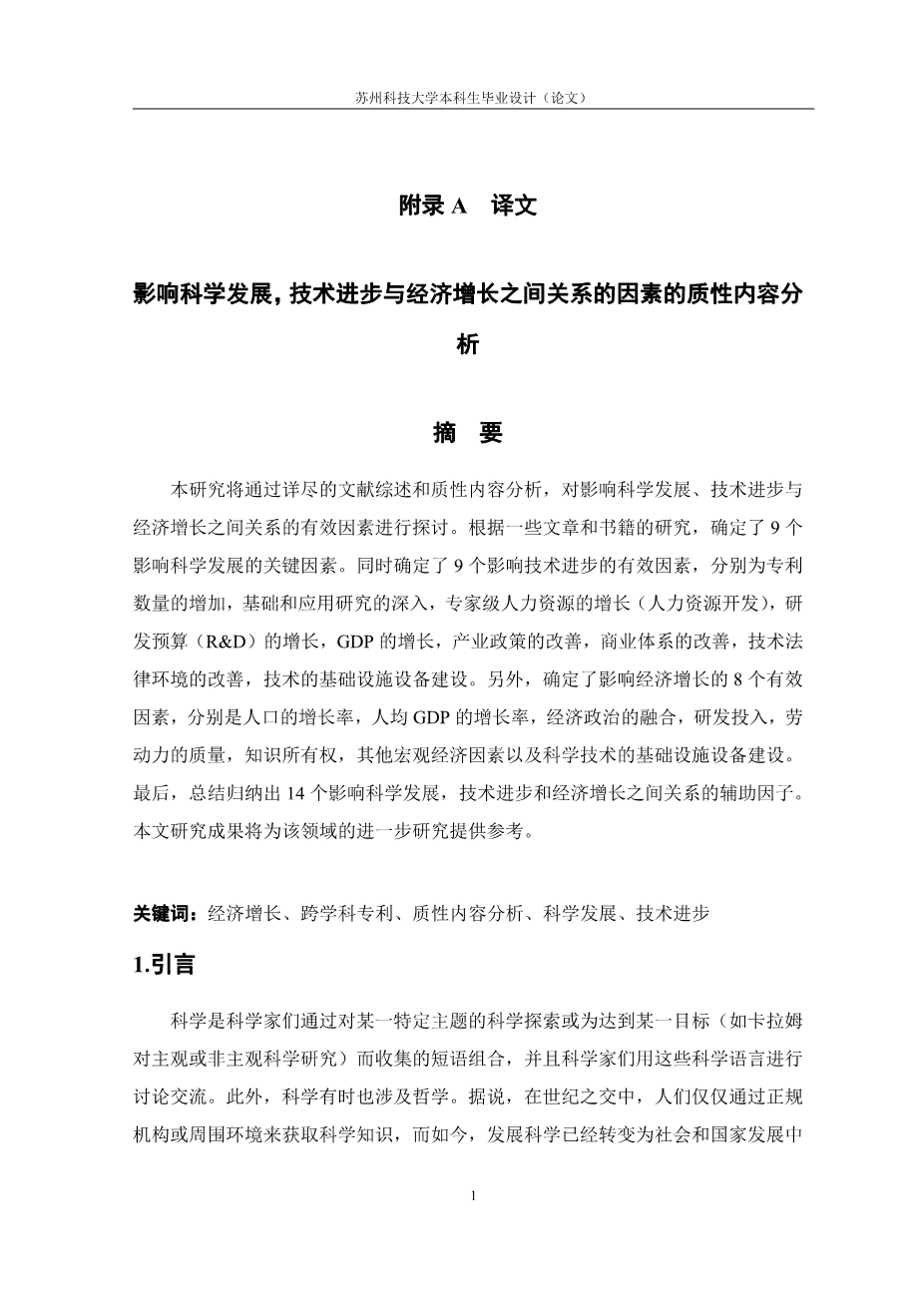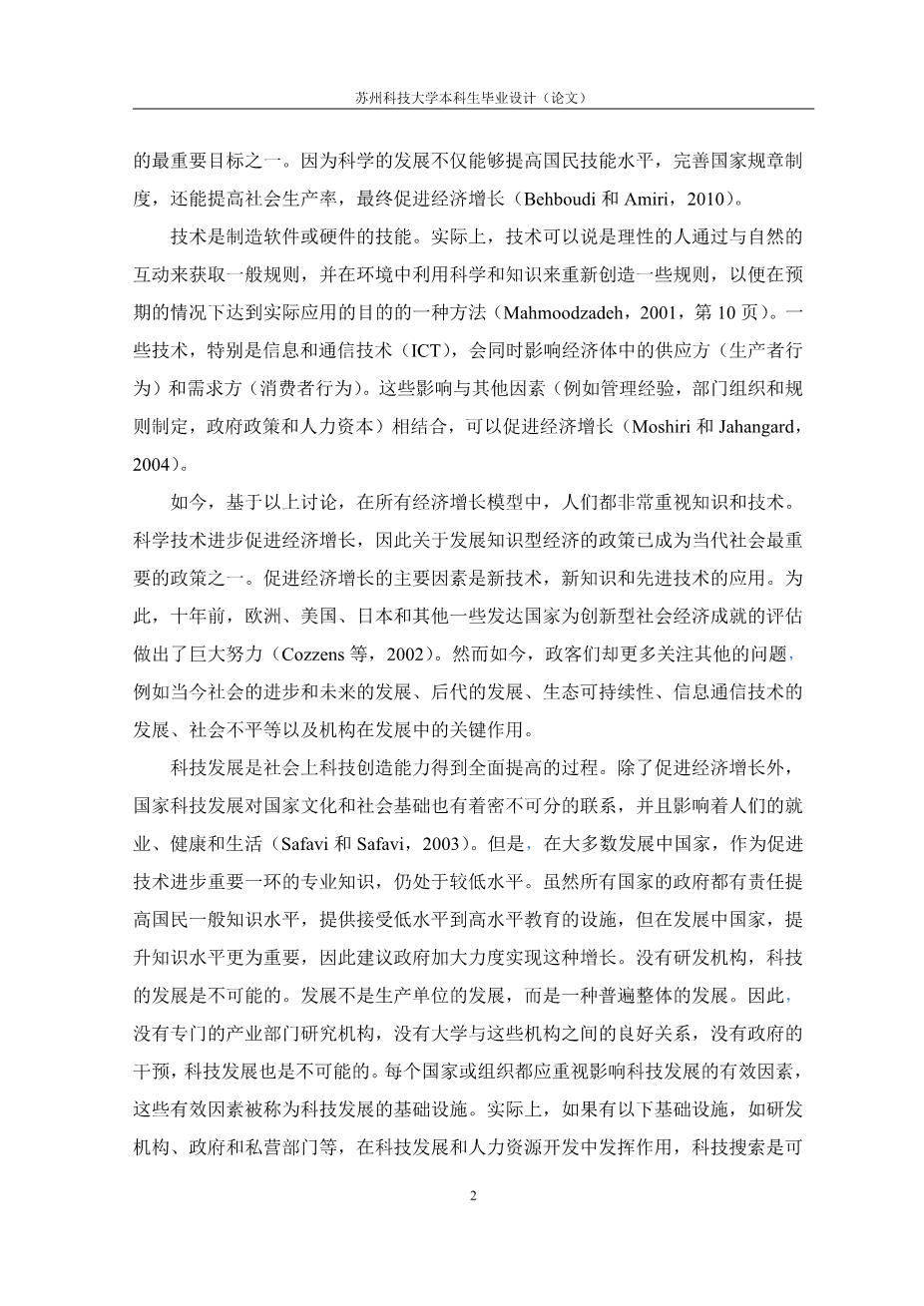Qualitative content analysis of factors affecting the relationship of science development, technology development and economic growth
Abstract
The present research tries to investigate the effective factors that affect the relationship among science development, technology development and economic growth using thorough literature review and qualitative content analysis. After investigating several articles and books, nine factors were identified as key factors which affect science development. In addition, nine factors of increasing the amount of patents, basic and applied researches growth, expert human resources growth (human resources development), growth of research and development (Ramp;D) budget, GDP growth, improvement of industrial policy, commercial system improvement, technology legal environment development and technology infrastructures, facilities and equipment development were determined as effective factors on technology development. Furthermore, eight factors of population growth rate, GDP per capita growth, economic-political convergence, investment in Ramp;D, workforce quality, ownership rights and other macroeconomic factors and science and technology infrastructures, facilities and equipment development were determined as effective factors on economic growth. Finally, 14 co-factors were determined for the relationship among science development, technology development and economic growth. The results will shed light for future research in the field.
Keywords: economic growth; interdisciplinary patent; qualitative content analysis; science development; technology development.
1 Introduction
Science is a combination of phrases that scientists collected through scientific explorations on a given subject or meeting an objective (in subjective or non-subjective sciences such as Kalam) and scientists discuss among each other through these scientific languages. Furthermore, it sometimes includes philosophy. Anecdotically, in the turn of centuries, human being tried to acquire science via formal institutions or environment and today, acquiring of science has transformed as one of the most important goals of societies and countries. Science acquisition will lead to an improvement in skills and regulations and furthermore, will lead to an increase in productivity, which ultimately facilitate the economic growth (Behboudi and Amiri, 2010).
Technology is a skill for making software or hardware. In fact, it can be stated that, the rational human extracted the general rules through the interaction with the nature and recreate these rules with the usage of science and knowledge in the environment, in order to make his/ her intended applications in an intended situation (Mahmoodzadeh, 2001, p.10). Several technologies, particularly information and communication technologies (ICT), affect both the supply side (producer behaviour) and the demand side (consumer behaviour) in an economy. This behaviour correction, in companion with other factors such as managerial experience, sectoral organising and rule making, Government policies and human capital, can lead to an economic growth (Moshiri and Jahangard, 2004).
Today, based on the above discussions, in all models of economic growth, a great attention has paid to knowledge and technology. Hence, science and technology advancement is a propeller engine for economic growth. Formation of knowledge-based economy is one of the most important policies of todayrsquo;s societies. Main factors of growth in this economy are the technology creation, new knowledge and the application of advanced technology. To do so, about a decade ago, Europe, USA, Japan and some other developed countries put a great effort to the evaluation of innovationrsquo;s socio-economic achievements (Cozzens et al., 2002). Anecdotically, policy makers change their views to concentrate more on issues such as todayrsquo;s advancement and tomorrowrsquo;s development, future generations, ecological sustainability, ICT development, social inequalities and the key role of institutions in development.
Science and technology development is the process in which the capability of science and technology creation has totally reinforced and improved in the society. In addition to economic growth, national science and technology development has a powerful and effective relationship with cultural and social foundations, which lead to an effect on peoplersquo;s employment, health and living (Safavi , 2003). In the majority of developing countries, sufficient level of knowledge and expertise, which is the fundamental component of technological development and advancement, is in the low level. Although, in all countries, it is the governmentrsquo;s responsibility to increase the general knowledge level and prepare facilities for low-level to high-level education, but due to the importance of growth in developing countries, it is recommended that governments put more effort to exert this growth. Science and technology development is impossible without research and development (Ramp;D) institutions and development is not the development in the production unit, but it is a general development, which is impossible without establishing research institutions in industrial units and the sound relationship between universities and industries, which are also impossible without the intention of the government. In each country or organization, effective factors and situations on science and technology development should be considered. These effective factors on science and technology development are called science and technology development infrastructures. In fact, science and technology search is viable in the presence of such infrastructures as Ramp;D institutes, government and private sectors role-playing in science and technology development and human resources development (Vaez and Ghanbari, 2008).
According to the above explan
剩余内容已隐藏,支付完成后下载完整资料


英语译文共 6 页,剩余内容已隐藏,支付完成后下载完整资料
资料编号:[413734],资料为PDF文档或Word文档,PDF文档可免费转换为Word


